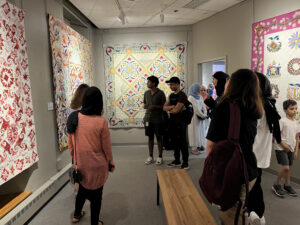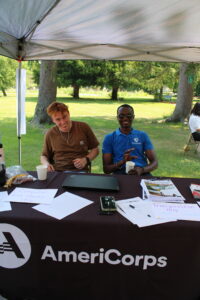1954–1964: Refugee Relief Over Quotas
Welcome to the fifth installment of our series “100 Years of Welcome: Commemorating IINE’s Boston Centennial.” The previous installment, “1944-1953: A Home for the Displaced,” described how the International Institute of Boston (IIB) worked to resettle and integrate more than 10,000 people displaced by the Second World War and served hundreds of refugees fleeing communist dictatorships. Further into the Cold War period, IIB successfully transitioned into an agency focused on the needs of refugees while also making significant strides in the fight against the biased immigration policy. During this period, IIB lobbied against U.S. immigration policy based on the discriminatory “quota system” of setting caps on the number of immigrants admitted from designated countries.
Help for Hungarian Uprising
IIB responded quickly in the last months of 1956 when a new crisis erupted in a communist enclave of Eastern Europe just as the Refuge Relief Act of 1953 was set to expire. In October, thousands of Hungarians took to the streets demanding freedom from Soviet control. The Soviets tried appeasing them by appointing a liberal new premier, but by November, Imry Nagi had proven too liberal. Instead of a statesman, the Soviets now sent army tanks into Budapest. Twenty-five hundred Hungarians died in street skirmishes and 200,000 more fled as refugees.
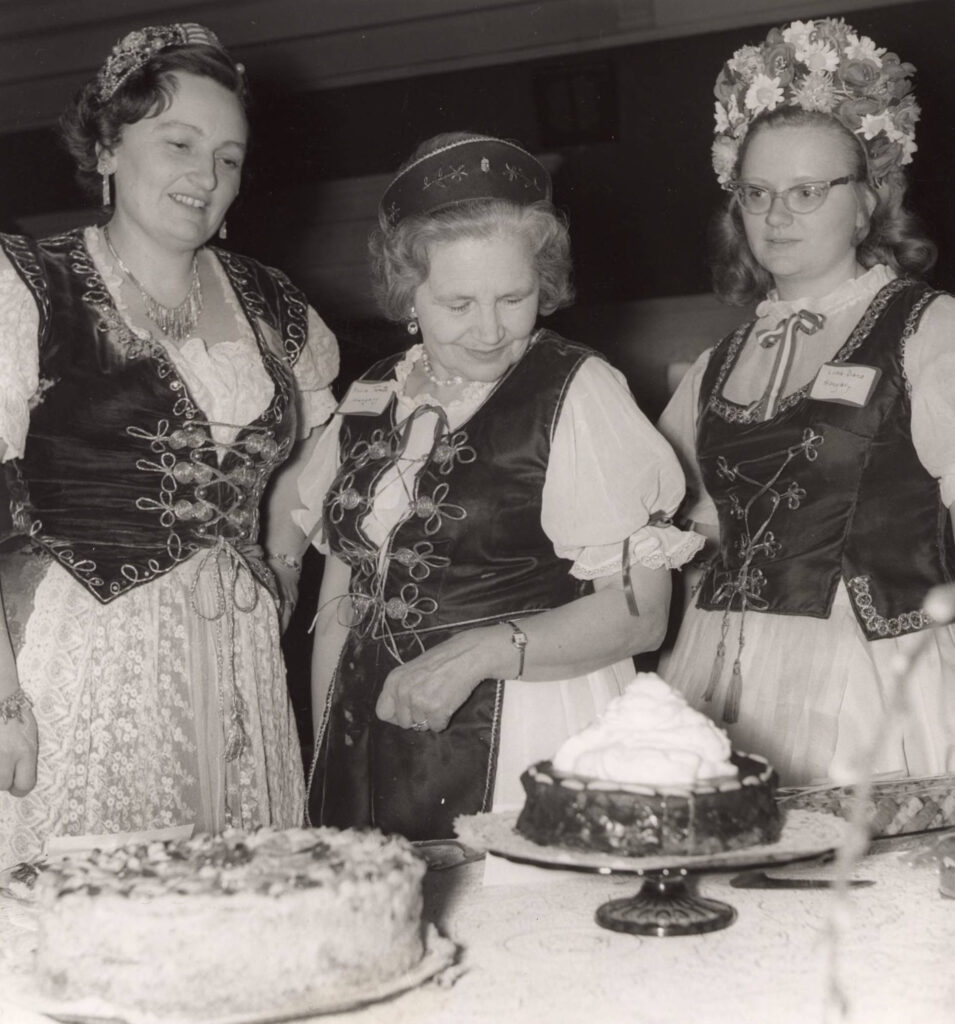 Back in Boston, the International Institute raced to coordinate with the federal government to admit as many Hungarian refugees as possible before the Refugee Relief Act was to expire at the end of December. Some were let in by the end of the year, but ultimately more were admitted afterward under the nation’s first use of “humanitarian parole,” which allowed threatened immigrants to enter the U.S. during emergency circumstances, but with limited rights and protections. In 1958, Congress passed a law allowing Hungarian parolees to become lawful permanent residents of the United States, setting an important precedent.
Back in Boston, the International Institute raced to coordinate with the federal government to admit as many Hungarian refugees as possible before the Refugee Relief Act was to expire at the end of December. Some were let in by the end of the year, but ultimately more were admitted afterward under the nation’s first use of “humanitarian parole,” which allowed threatened immigrants to enter the U.S. during emergency circumstances, but with limited rights and protections. In 1958, Congress passed a law allowing Hungarian parolees to become lawful permanent residents of the United States, setting an important precedent.
The International Institute successfully settled hundreds of Hungarian refugees in Boston and created a Hungarian social club to help them support one another. Within a few years, a Hungarian immigrant named Gaspar Jako would become the first Executive Secretary of the International Institute of Boston to be born outside of the U.S.
Armenians Advocate
Another victory over the quota system came in 1959 when the National Council for Immigration and Resettlement of Armenians (NCIRA), founded at the International Institute, testified before the U.S. Senate Judiciary Committee that despite the continued persecution of Armenians abroad, including many whose displacement had led them to Soviet countries, a backlog in visa processing was preventing them from joining their families and fellow refugees in the U.S.
Persecuted Armenians had been settling in Boston since the late 1890s, and had significant settlements in Boston’s South End neighborhood, the neighboring city of Cambridge, the North Shore cities of Lynn and Chelsea, and most significantly, in the Greater Boston city of Watertown, which by the 1930s was 10% Armenian. IIB served this population from its earliest days, hiring “Nationality Workers” for the Armenian community in its founding year of 1924.
The NCIRA’s testimony would help lead the passage of Public Law 86/363, an amendment to the McCarran-Walter Act, which exempted many foreign-born spouses and children of immigrants from all over the world who had achieved U.S. citizenship from their country quotas for the purpose of family reunification.
A Letter to President Kennedy
In 1960, Boston native John Fitzgerald Kennedy, a second-generation American with deep roots in Ireland, ran for president on a staunchly pro-immigrant platform. “Immigration policy should be generous; it should be fair; it should be flexible,” he said on the campaign trail. “With such a policy, we can turn to the world, and to our own past, with clean hands and a clear conscience.”
In 1961, the International Institute of Boston seized the opportunity presented by Kennedy’s election to continue its fight against the quota system by sending a letter to the newly minted president urging him to act on his values and “take the lead in developing a non-discriminatory, humanitarian immigration system…”
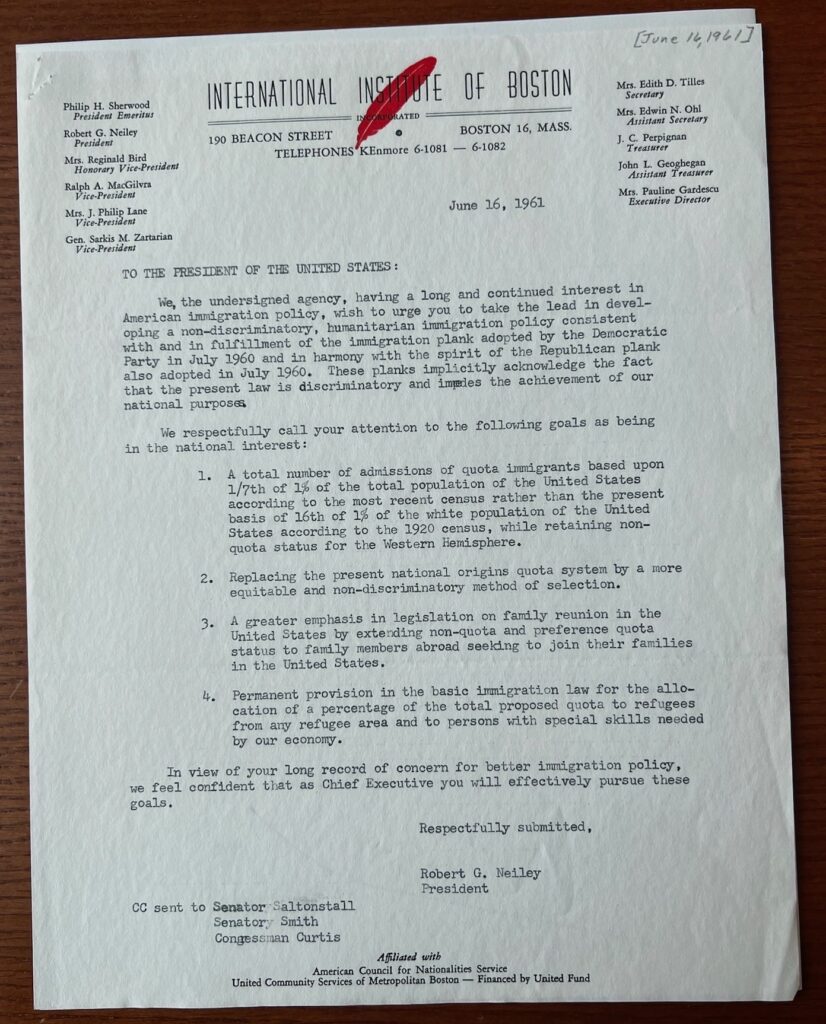 The letter called for “replacing the present national origins quota system by a more equitable and non-discriminatory method of selection…greater emphasis in legislation on family reunion,” and a “Permanent provision in the basic immigration law for…refugees from any refugee area, and to persons with special skills needed by our economy.”
The letter called for “replacing the present national origins quota system by a more equitable and non-discriminatory method of selection…greater emphasis in legislation on family reunion,” and a “Permanent provision in the basic immigration law for…refugees from any refugee area, and to persons with special skills needed by our economy.”
Later that year, President Kennedy signed an amendment to the McCarran–Walter act addressing its use of country quotas. The amendment reformed the quota system by eliminating some of its explicitly race-based criteria, reallocating unused visas if quotas had not been met, giving visa priority to immigrants’ relatives to promote family reunification and to refugees, and expanding the categories of immigrants who were not subject to quotas.
Upon signing the bill, President Kennedy proudly stated, “We have removed a long-standing injustice in the way that immigration quotas are allocated, based on a formula that was obsolete and unfair.”
Later in 1961, when communist revolution flared in nearby Cuba, President Kennedy would again have the opportunity to prove his commitment to persecuted immigrants. Through his Cuban Refugee program, as well as the use of humanitarian parole, his administration would admit more than 200,000 people fleeing Cuba to the U.S. Working with the Massachusetts Council of Churches Refugee Committee and National Catholic Welfare Council, the International Institute of Boston helped thousands of these Cuban immigrants to resettle in Boston.
Kennedy continued to push for greater immigration reforms exactly in line with the requests from the International Institute in his home city. In a national address in 1963, he told his fellow citizens, “The national origins quota system has no place in the American way of life. It is an anachronism that no longer reflects the realities of our society or the values we cherish. I urge the Congress to pass legislation that will establish a more equitable system, one that prioritizes family reunification and the skills and talents of prospective immigrants.”
Preparing For a New Era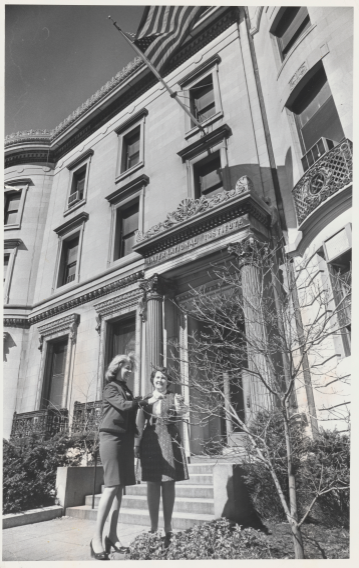 In 1964, IIB secured a new home. The growing organization purchased its own building at 287 Commonwealth Avenue in Boston’s Back Bay neighborhood and raised more than $100,000 from its Board of Directors and membership to outfit the space for case work, classes, and cultural events. Staff moved in and began operations just in time—one year before a landmark immigration reform bill that would change immigration policy—and IINE’s work—forever.
In 1964, IIB secured a new home. The growing organization purchased its own building at 287 Commonwealth Avenue in Boston’s Back Bay neighborhood and raised more than $100,000 from its Board of Directors and membership to outfit the space for case work, classes, and cultural events. Staff moved in and began operations just in time—one year before a landmark immigration reform bill that would change immigration policy—and IINE’s work—forever.
Today, just over a mile away in our offices on Boylston Street, the International Institute continues its focus on welcoming and resettling refugees, now serving more than 20,000 immigrants a year from 75 destabilized countries worldwide. Building on the work of the last 100 years, IINE and its supporters also continue the tradition of fierce advocacy for Kennedy’s “equitable and non-discriminatory” system of immigration with more pathways to entrance, permeance, and security for today’s seekers of safety, freedom, and a better future.
During our centennial year, we celebrate 100 years of life-changing support to refugees and immigrants in Greater Boston and prepare for our second century of service. Learn more here: IINE Boston Centennial.


 What are you studying at Tufts and what drew you to those studies?
What are you studying at Tufts and what drew you to those studies?